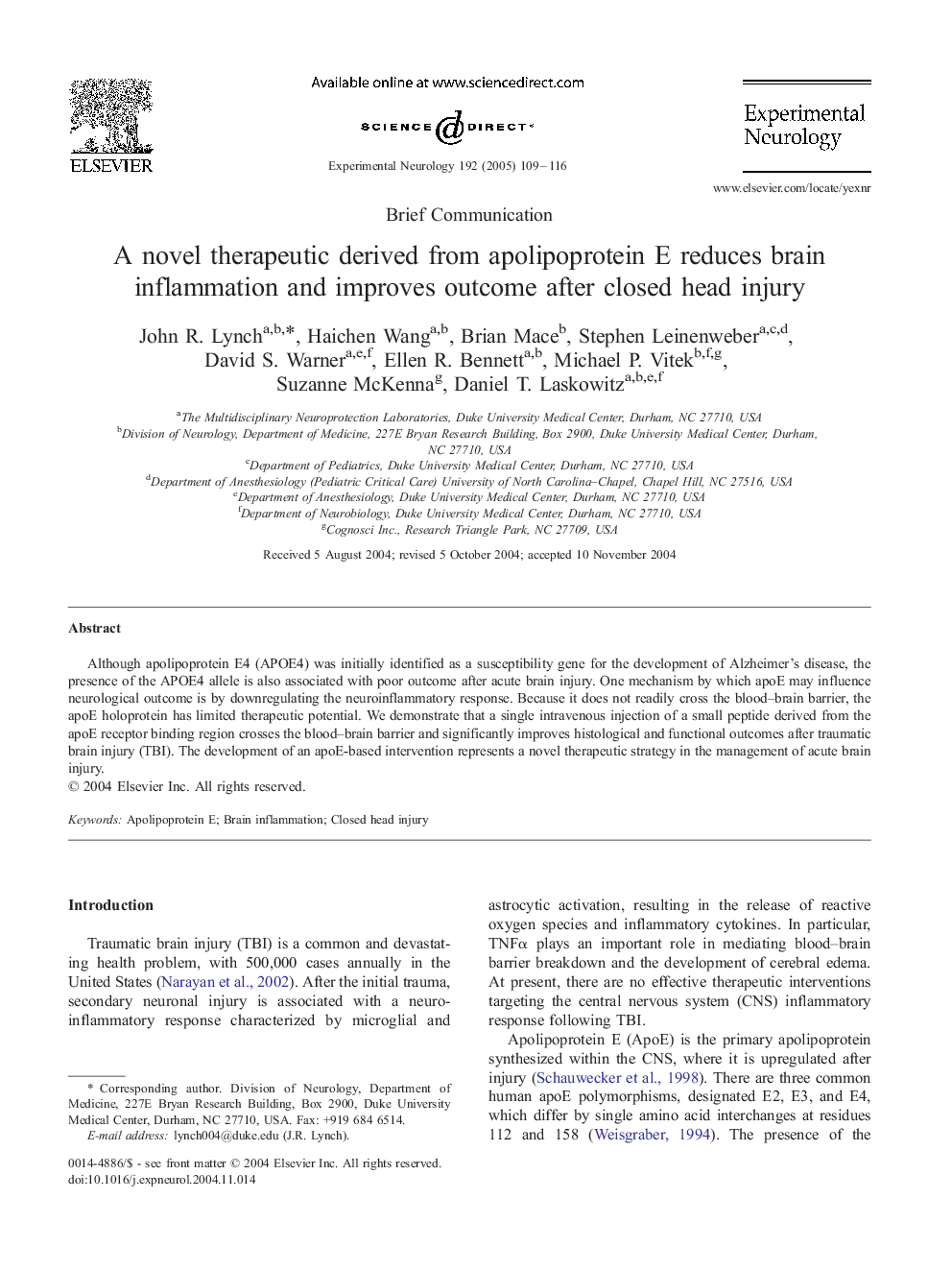| Article ID | Journal | Published Year | Pages | File Type |
|---|---|---|---|---|
| 9192084 | Experimental Neurology | 2005 | 8 Pages |
Abstract
Although apolipoprotein E4 (APOE4) was initially identified as a susceptibility gene for the development of Alzheimer's disease, the presence of the APOE4 allele is also associated with poor outcome after acute brain injury. One mechanism by which apoE may influence neurological outcome is by downregulating the neuroinflammatory response. Because it does not readily cross the blood-brain barrier, the apoE holoprotein has limited therapeutic potential. We demonstrate that a single intravenous injection of a small peptide derived from the apoE receptor binding region crosses the blood-brain barrier and significantly improves histological and functional outcomes after traumatic brain injury (TBI). The development of an apoE-based intervention represents a novel therapeutic strategy in the management of acute brain injury.
Related Topics
Life Sciences
Neuroscience
Neurology
Authors
John R. Lynch, Haichen Wang, Brian Mace, Stephen Leinenweber, David S. Warner, Ellen R. Bennett, Michael P. Vitek, Suzanne McKenna, Daniel T. Laskowitz,
